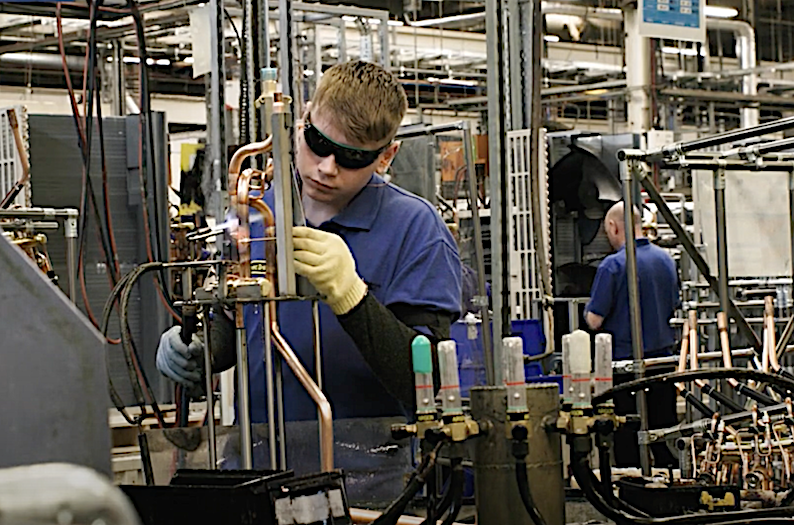Bank faces ‘tricky position’ over labour market – Daily Business



Bank of England policymakers face a balancing act as the jobs market has continued to weaken but wage growth remains strong.
According to the latest figures from the Office for National Statistics, wage growth slowed, but pay is still rising faster than the rate of inflation.
Regular earnings, which exclude bonuses, grew at an annual pace of 5.6% in the first three months of the year.
The UK unemployment rate increased to 4.5% in the January to March period, the ONS said, up from the previous figure of 4.4%.
Luke Bartholomew, deputy chief economist, at Aberdeen, said; “While the labour market continues to slow, and there is some evidence of the impact of the increase in national insurance and in the HMRC payrolls data, there is nothing to suggest it immediately fell off a cliff in response to the shock.
“Combined with the better trade news recently, there is nothing here to make the Bank of England regret its decision to say the easing cycle will continue to be only “gradual”.
Ruth Gregory, deputy chief UK economist at Capital Economics, said that while wage growth had slowed, it still remained relatively strong, leaving the Bank of England in a “tricky position” over future interest rate cuts.
“Sticky wage growth may mean the Bank remains uneasy about inflationary pressures in the near term,” she said.
“As a result, the ‘gradual’ interest rate cutting path will remain the balancing act.”
Nicholas Hyett, investment manager at Wealth Club, said: “The UK Labour market is painting a bit of a mixed picture.
“On the one hand unemployment is a touch higher than last month and vacancies are also shrinking. On the other, wages continue to grow well ahead of inflation, with sectors like retail, hotels and restaurants showing particular wage strength.
“That doesn’t bode well for businesses in the labour intensive hospitality and retail sectors – with higher wages and looming tax change both likely to push up costs. Fortunately a broad rise in wages suggests the consumer will be able to stomach some extra costs from higher prices.”
Kevin Brown, savings specialist at Scottish Friendly, said: “On the surface, ONS wage data continues to give UK households some reason for cheer.
“Pay rises are still climbing ahead of inflation, in a boost to household disposable income for many. Wages continue to defy the relatively gloomy prognosis for the UK economy, but the rate is slowing relative to inflation.
“The data does not yet capture the impact of either the National Insurance rises and living wage increase, which started in April, nor the drama created by US tariffs and their impact here in the UK.
“There are signs that wage growth will slow further from here. Business confidence is at its lowest level since the Covid pandemic. Private sector headcount growth has slowed to a snail’s pace, while headcount is expected to fall among public sector workers.”
#Bank #faces #tricky #position #labour #market #Daily #Business




